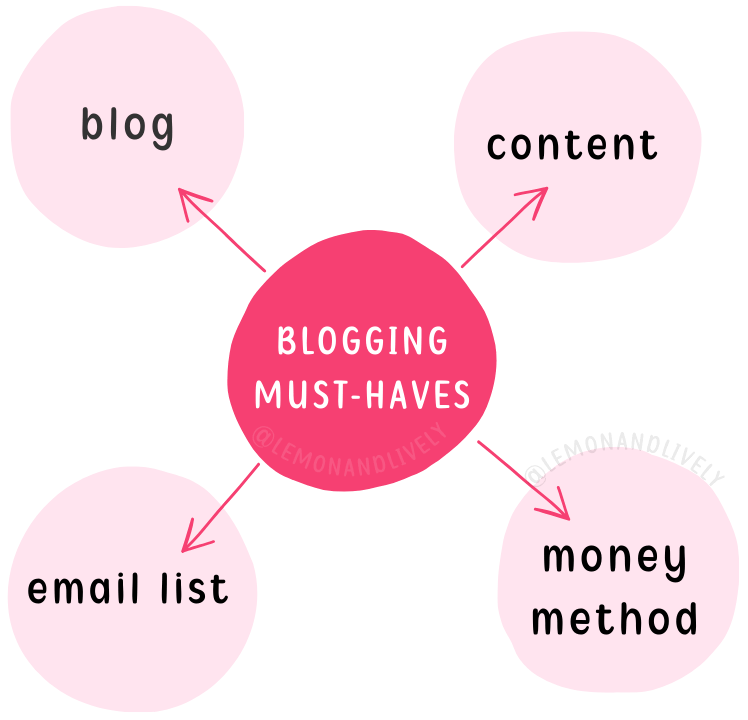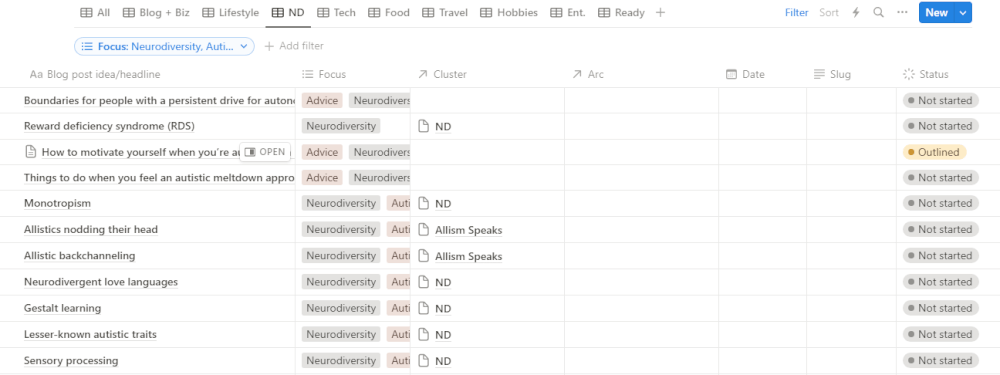Blogging is not that hard. It’s not that complicated. I think blogging as a concept has been overcomplicated because premium ad networks prefer long blog posts and other bloggers really want to walk you through how to sign up for Bluehost.
(By the way, pro-Bluehost bloggers are huuuuge red flags. 🚩)
Here are the “4 keys” your blog needs if you’re gonna blog as a biz. 👇

1. A functional site with blogging capabilities
It doesn’t have to be WordPress. 😲 It can be Wix, Ghost, Github + Jekyll…
You need more than “just a site”; you need to be able to have an actual blog, not only pages you allow comments on.
Set your blog up for success. 💁♀️
If you hate the platform you start your blog on, you can change later. New bloggers are often pushed onto WordPress, which overwhelms people who aren’t ready for it. WordPress is not the only blogging platform.
The “best” blogging platform is subjective. If I didn’t have everything on WordPress, had the patience, and wanted to, I would move my blog to Github Pages and Jekyll. 👀
2. Super helpful content
Blogs need helpful, entertaining, relatable, etc. content. Don’t be useless.
Amazing content gets shared. Actually helpful content gets found.
Creating an editorial calendar and organizing your blog post ideas into customer journeys and topic clusters can help you create content that truly helps your audience, answers questions, etc.

I think bloggers hold back from creating utterly amazing blog posts because they feel obligated to always have a “next big thing” or “something more amazing” or a “next part” in general.
Viewing each topic as one post helps me ensure I’m creating the best post I can for that topic, because I’m not planning to create nine other pieces on it that are more or less the same. 👀
In turn, those single-topic posts perform better in search because they’re not competing with their similar counterparts.
At the same time, bloggers feel obligated to hit certain word counts in the name of search engine optimization (SEO), when this is 💯 myth.
Forcing oneself to hit a specific word count often results in verbosity, which means adding a bunch of filler words or rewording the same. exact. thing. multiple times…which isn’t helpful to anyone. 🤷♀️
Not all posts need 1000 words to hit in a helpful manner. Unless I think of more ways to expand on this post, it’s going to be less than 1000 words. 😎
3. A newsletter
Email marketing makes blogging easier.
I’m impressed by how much of a difference having a newsletter makes for my blog. Everyone else talks about how “each subscriber should make you at least $1 per month”.
I want to talk about how email subscribers = deeper connections. I like building relationships with my blog readers, even if I’m bad at maintaining conversations with people (thank you, DID and autism).
Email marketing builds trust, which creates a more loyal audience. You get to actively nurture a relationship with each audience member in a 1:1 setting.
People’s inboxes are considered “intimate” spaces. 👀🌹
My newsletter helps me drive traffic back to my blog on a regular basis, which means I’m not solely relying on search engines for traffic.
4. A way to earn money
If you’re blogging as a/for business, you need a way to earn money via your blog. No one can buy anything from you if you’re not selling anything.
You won’t make money if you never sell anything. Not selling = no income. 😬
Find a way to make money as you grow your blog instead of waiting to slap ads onto it.
The simplest way to do this is by selling minimum viable product (MVP) to validate your bigger-picture ideas. You can do this via funnel or flywheel marketing.
I prefer a marketing flywheel, which is less aggressive than funnels and focuses more on nurturing relationships.
So, for me, this looks like
- All marketing efforts 👉 email subscribers
- Putting more effort & energy into email
- Publishing content publicly that nurtures existing audience & encourages audience to subscribe
I miss old school blogging, ’cause I miss the days when blogging was more simple and less complicated simply to be complicated. 🥴
P.S. Download my blog management Notion template. 😏
Love this post?
Support me by subscribing to my blog and/or buying me a cuppa:
Leave a comment